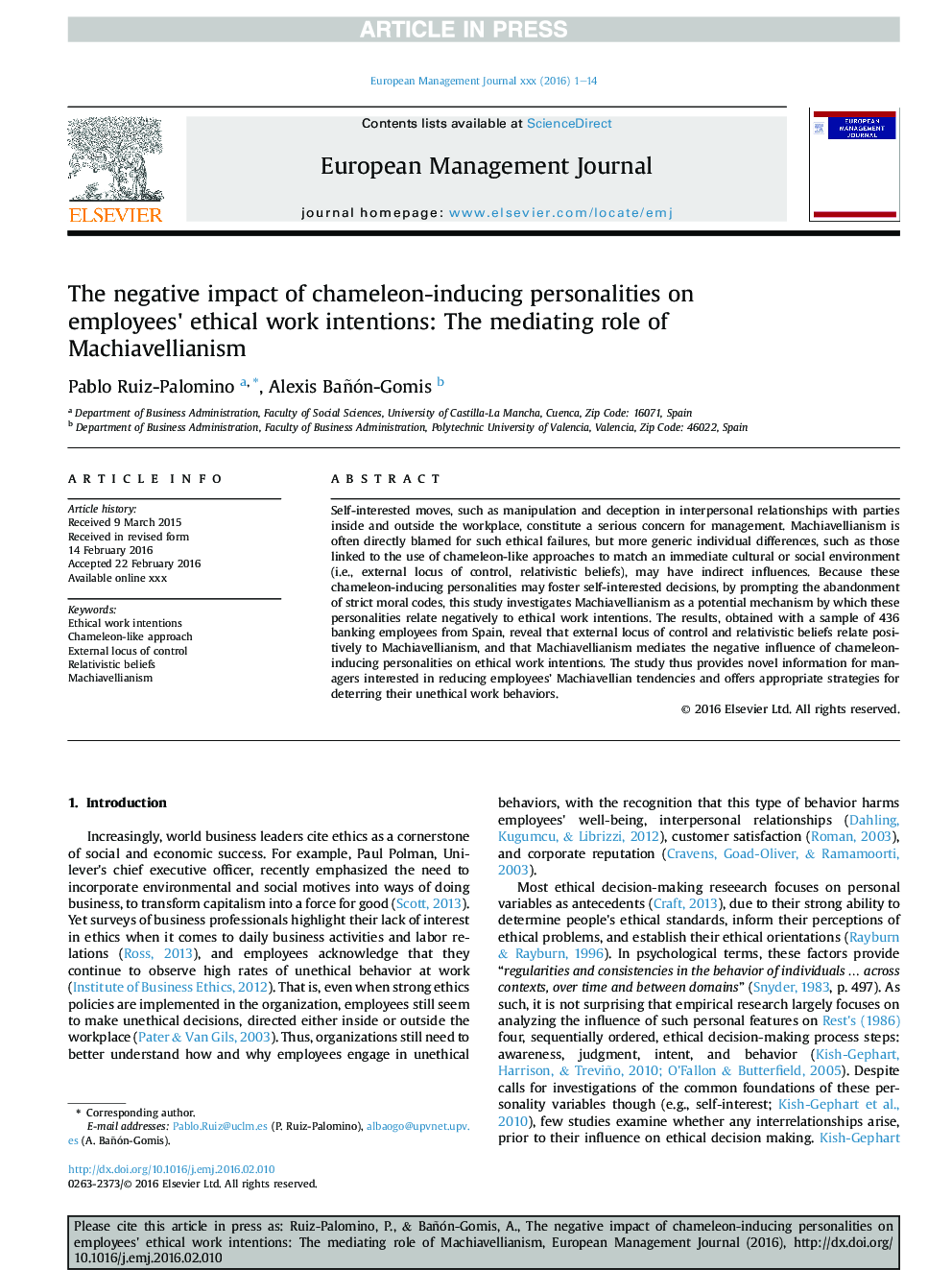| Article ID | Journal | Published Year | Pages | File Type |
|---|---|---|---|---|
| 5109021 | European Management Journal | 2017 | 14 Pages |
Abstract
Self-interested moves, such as manipulation and deception in interpersonal relationships with parties inside and outside the workplace, constitute a serious concern for management. Machiavellianism is often directly blamed for such ethical failures, but more generic individual differences, such as those linked to the use of chameleon-like approaches to match an immediate cultural or social environment (i.e., external locus of control, relativistic beliefs), may have indirect influences. Because these chameleon-inducing personalities may foster self-interested decisions, by prompting the abandonment of strict moral codes, this study investigates Machiavellianism as a potential mechanism by which these personalities relate negatively to ethical work intentions. The results, obtained with a sample of 436 banking employees from Spain, reveal that external locus of control and relativistic beliefs relate positively to Machiavellianism, and that Machiavellianism mediates the negative influence of chameleon-inducing personalities on ethical work intentions. The study thus provides novel information for managers interested in reducing employees' Machiavellian tendencies and offers appropriate strategies for deterring their unethical work behaviors.
Keywords
Related Topics
Social Sciences and Humanities
Business, Management and Accounting
Business and International Management
Authors
Pablo Ruiz-Palomino, Alexis Bañón-Gomis,
